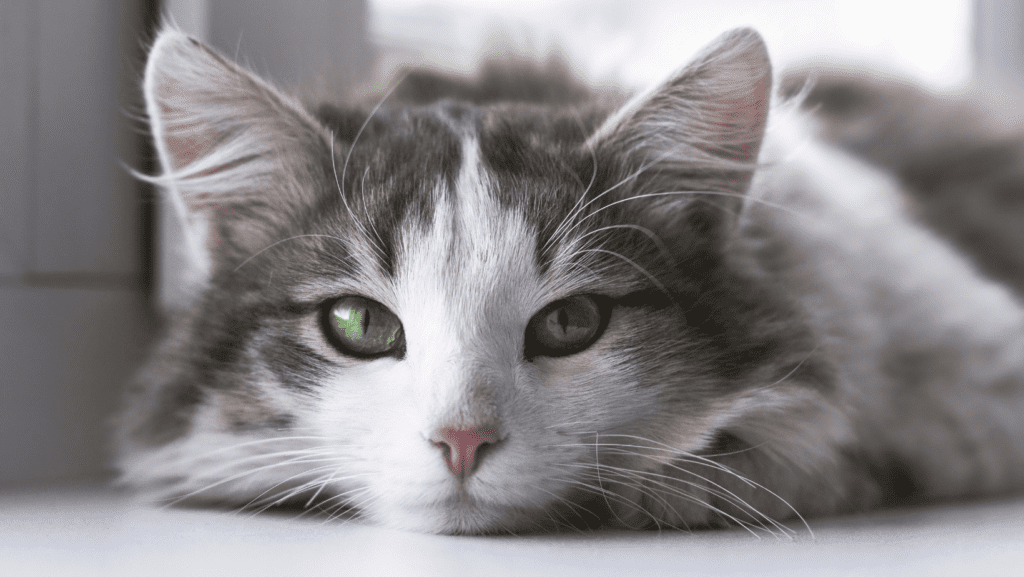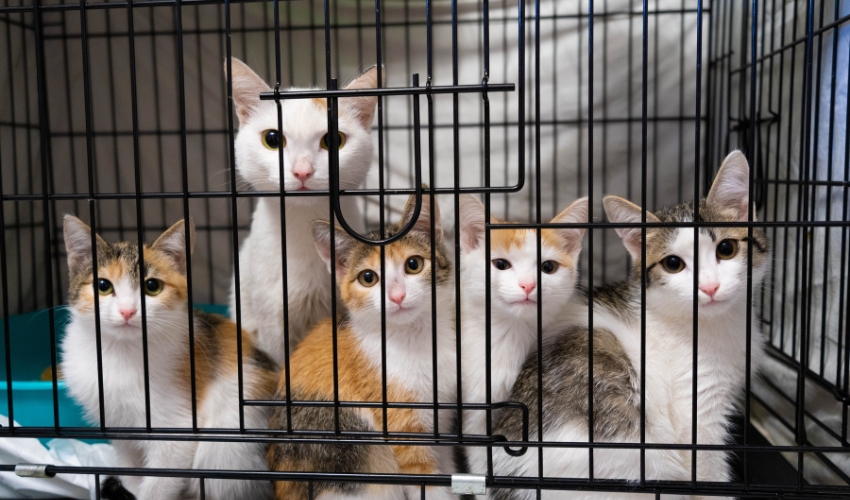Cystitis, or inflammation of the bladder, is a common urinary tract disorder that affects cats of all ages and breeds. From discomfort and pain to potential complications, cystitis can significantly impact a cat’s overall well-being. In this comprehensive guide, we’ll explore the causes, prevention strategies, treatment options, and lifestyle modifications to promote a healthy urinary system in cats, ensuring their long-term health and happiness.
Understanding Cystitis in Cats:
Cystitis in cats can be broadly classified into two main categories: infectious cystitis and non-infectious cystitis. Infectious cystitis is typically caused by bacterial, viral, or fungal infections, while non-infectious cystitis often results from factors such as stress, diet, urinary tract obstructions, or underlying medical conditions. Regardless of the underlying cause, cystitis manifests as inflammation of the bladder lining, leading to a range of clinical signs and symptoms.
Common Signs and Symptoms:
Recognizing the signs and symptoms of cystitis in cats is essential for early detection and intervention. Common clinical manifestations of cystitis may include:
Frequent Urination: Cats with cystitis may urinate more frequently than usual, often in small amounts. They may exhibit straining or discomfort while urinating, vocalizing or showing signs of distress in the litter box.
Blood in the Urine: Hematuria, or blood in the urine, is a hallmark sign of cystitis in cats. The urine may appear pink, red, or brownish in color, indicating inflammation or irritation of the bladder lining.
Urinary Accidents: Cats may experience urinary accidents outside the litter box due to the urgency and discomfort associated with cystitis. They may urinate on inappropriate surfaces or exhibit signs of house soiling.
Pain or Discomfort: Cats with cystitis may show signs of pain or discomfort, such as restlessness, pacing, or vocalizing when touched or picked up. They may exhibit signs of abdominal discomfort or sensitivity.
Lethargy and Changes in Behavior: Cystitis can impact a cat’s energy levels and behavior, leading to lethargy, depression, or changes in appetite. Cats may become withdrawn or less active than usual.
Causes and Risk Factors:
Several factors can contribute to the development of cystitis in cats, including:
- Bacterial, viral, or fungal infections
- Stress or anxiety
- Dietary factors, such as inadequate water intake or high magnesium content in food
- Urinary tract obstructions, such as bladder stones or urethral plugs
- Underlying medical conditions, such as diabetes, kidney disease, or hyperthyroidism
Prevention Strategies:
Preventing cystitis in cats involves addressing underlying risk factors and implementing lifestyle modifications to promote urinary tract health. Here are some strategies to help prevent cystitis:
Provide Fresh Water: Ensure your cat has access to fresh, clean water at all times to encourage adequate hydration. Consider investing in a pet fountain or multiple water bowls placed throughout the home to encourage drinking.
Balanced Diet: Feed your cat a balanced and nutritious diet formulated to support urinary tract health. Choose high-quality cat food that is low in magnesium and contains adequate moisture content to promote urine dilution.
Stress Management: Minimize stressors and environmental triggers that may contribute to anxiety or stress in your cat. Provide a calm and secure living environment, establish predictable routines, and offer plenty of opportunities for mental stimulation and play.
Litter Box Maintenance: Keep the litter box clean and odor-free by scooping it regularly and replacing the litter as needed. Provide multiple litter boxes in different locations throughout the home to accommodate your cat’s preferences and encourage regular urination.
Veterinary Check-ups: Schedule regular veterinary check-ups for your cat to monitor their overall health and detect any underlying medical conditions that may predispose them to cystitis. Your veterinarian can recommend preventive measures and treatment options tailored to your cat’s specific needs.
Treatment Options:
Treatment for cystitis in cats varies depending on the underlying cause and severity of the condition. In cases of infectious cystitis, your veterinarian may prescribe antibiotics or antiviral medications to target the underlying infection. Non-infectious cystitis may require symptomatic treatment, such as pain management, anti-inflammatory drugs, or urinary acidifiers to alleviate discomfort and reduce inflammation. In severe or recurrent cases of cystitis, your veterinarian may recommend additional diagnostic tests, such as urinalysis, ultrasound, or imaging studies, to identify underlying urinary tract abnormalities or obstructions.
Lifestyle Modifications:
In addition to medical treatment, lifestyle modifications can play a crucial role in managing cystitis and promoting urinary tract health in cats. Consider the following lifestyle changes to support your cat’s well-being:
Stress Reduction: Minimize stressors and environmental triggers that may contribute to anxiety or stress in your cat. Provide a calm and secure living environment, offer plenty of opportunities for mental stimulation and play, and consider using pheromone diffusers or calming supplements to promote relaxation.
Environmental Enrichment: Provide a stimulating and enriching environment for your cat, including interactive toys, scratching posts, and vertical space for climbing and exploration. Engage in regular play sessions and bonding activities to keep your cat mentally and physically stimulated.
Weight Management: Maintain a healthy weight for your cat through proper diet and exercise. Obesity can exacerbate urinary tract problems and increase the risk of developing cystitis. Work with your veterinarian to develop a weight management plan tailored to your cat’s needs.
Regular Veterinary Monitoring: Schedule regular veterinary check-ups and urine screenings for your cat to monitor their urinary tract health and detect any early signs of cystitis or other urinary tract disorders. Your veterinarian can provide guidance on preventive care and treatment options to keep your cat healthy and happy.
Cystitis is a common urinary tract disorder that can affect cats of all ages and breeds. By understanding the causes, recognizing the signs and symptoms, and implementing preventive measures and treatment options, pet owners can help their cats maintain a healthy urinary system and overall well-being. With proper care, attention, and veterinary support, cats can live happy, comfortable lives free from the discomfort and complications of cystitis.












